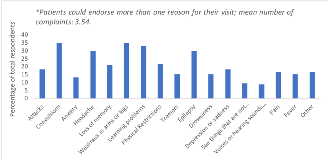An Update on the Impact of the International Neurology Foundation’s Annual Medical Mission in the Ecuadorian Amazon Rainforest
Abstract number :
1.422
Submission category :
13. Health Services (Delivery of Care, Access to Care, Health Care Models)
Year :
2018
Submission ID :
506829
Source :
www.aesnet.org
Presentation date :
12/1/2018 6:00:00 PM
Published date :
Nov 5, 2018, 18:00 PM
Authors :
Sarah Barnard, BS, Monash University; Kevin Shapiro, Cortica Behavioral Health; Ilana Porges, MPH, Sidney Kimmel Medical College of Thomas Jefferson University; Yaira Garzon, MD, International Neurology Foundation; María Inés Fernández Fern
Rationale: An estimated 80% of epilepsy cases worldwide are in developing countries 1. In 2009, the International Neurology Foundation (INF) established a non-profit mission to treat children and adults with epilepsy and other neurological disorders in the Amazon region of Ecuador, based at Hospital José María Velasco Ibarra in Tena.2 The annual event is now in its 10th year of service. In 2016, a preliminary needs assessment was conducted to explore barriers to treatment, burden of illness, and reliance on the mission. Methods: Optional surveys were distributed at the 2016 mission. Information regarding demographics, reason for visit, travel details, past and current medical treatment, and number of times visiting the mission was collected. We also asked several questions to assess the burden of neurologic disease in the community. Results: Demographics.Of 204 surveys distributed, 157 were completed. Of these, 39 (25%) were from adult patients (mean age 41 ± 3.3) and 106 (75%) were completed by adult caregivers on behalf of children (mean age 8.8 ± 1.1). Overall, 55% of patients were male; 84% reported Spanish as their primary language (10% reported Quichua, and 6% reported other indigenous languages). A majority of patients (82%) traveled less than one hour to the mission, though several (10%) traveled 4 hours or more. Medical need.Just under half of patients or caregivers (45%) reported that 2016 was their first visit to the mission. Of the remainder, a plurality (31%) had visited 7 or more times. Fully 88% relied on INF and Hospital José María Velasco Ibarra for neurological medications. Burden of disease.Among the most common chief complaints were convulsions (35%), epilepsy (30%), or attacks (19%). Other frequent complaints included weakness (35%), learning problems (33%), and headache (30%). A substantial minority (19%) spontaneously reported depression or sadness. When queried specifically, many patients endorsed a negative impact of neurologic disease on their emotions (52%), ability to get an education (53%), intelligence (45%), family relationships (39%), and employment opportunities (48%). Conclusions: There is a significant reliance on INF’s mission to provide ongoing neurological care to this community. Epilepsy and seizures remain among the most common chief complaints. The social, economic, and psychological impact of neurologic disease in this region is high, and a majority of patients seek follow up care from year to year. Since 2009, INF has continued to make progress in identifying and treating epilepsy in the Amazon region of Ecuador. Future missions will focus on addressing the disease burden and developing sustainable local systems of care. Funding: Not applicable

.tmb-.png?Culture=en&sfvrsn=e4645485_0)